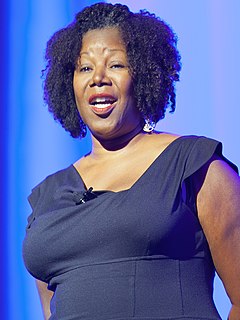A Quote by Sydney J. Harris
This is a lesson mankind has not yet learned. We identify, and stratify, and treat persons largely on the basis of their accidental (physical) characteristics, which have no deeper meaning.
Related Quotes
Barack Obama understands what Ronald Reagan learned, which is that people vote not on the basis of issues and policy details, but on the basis of something deeper, namely, what are your values? Are you authentic? Do you say what you believe? Do you communicate with us? And do we identify with you? You don't know what particular issues are going to come up in the future, so you have to depend on someone's values, and whether they are telling you the truth, and whether you can trust them in office. Obama's been running a campaign on that basis.
The physical basis for sociopathy is approximately 50 percent inheritable, which sounds more dramatic than it probably is, because most personality characteristics that psychologists test for and study the genetics of are about 50 percent inheritable. Introversion, extroversion, it turns out that they're about 50 percent inheritable, which means that somehow sociopathy is physical, it's organic.
We're not in the physical world. The physical world is in us. We create the physical world when we perceive it, when we observe it. And also we create this experience in our imagination. And when I say "we," I don't mean the physical body or the brain, but a deeper domain of consciousness which conceives, governs, constructs and actually becomes everything that we call physical reality.
One of the capabilities, which seems to be the most difficult for aspiring leaders to maste is realistic optimism. It requires one to recognize that our experience of life is largely up to us, that our situations, good or bad, are largely due to our ability on a moment-to-moment basis to capitalize on opportunity. Those that approach life as if it is largely outside of their own control, or that others are largely to blame for their circumstances, generally find growth elusive.
Many have marked the speed with which Muad'Dib learned the necessities of Arrakis. The Bene Gesserit, of course, know the basis of this speed. For the others, we can say that Muad'Dib learned rapidly because his first training was in how to learn. And the first lesson of all was the basic trust that he could learn. It is shocking to find how many people do not believe they can learn, and how many more believe learning to be difficult. Muad'Dib knew that every experience carries its lesson.
In one important sense, Marxism is a religion. To the believer it presents, first, a system of ultimate ends that embody the meaning of life and are absolute standards by which to judge events and actions; and, secondly, a guide to those ends which implies a plan of salvation and the indication of the evil from which mankind, or a chosen section of mankind, is to be saved.

































